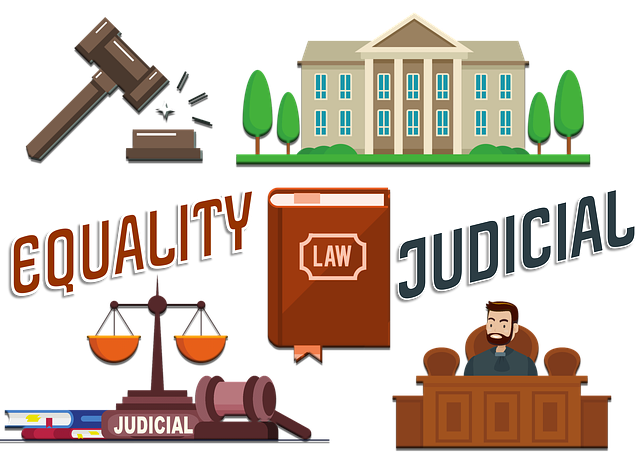When someone dies, their estate must go through a legal process overseen by courts to manage assets, settle debts, and distribute what remains according to a will or state laws. This involves inventorying assets, handling debts and taxes, and ensuring fair distribution among beneficiaries. Professional advisors, including attorneys with specialized knowledge in estate planning and settlement, play a key role in navigating the complexities of probate, courtroom procedures, and local laws. They ensure all necessary documentation is filed accurately, adhere to strict timelines, and manage intricate financial interests or handle any will contests. Their expertise is crucial for avoiding legal battles and ensuring full compliance with legal requirements. For estates with complex assets like real estate, businesses, or investment portfolios, specialized professionals in these areas are necessary to optimize asset distribution and maintain precise records to avoid legal entanglements. Ultimately, the court's involvement protects stakeholders and ensures that all actions are compliant with the decedent's directives and legal regulations. Engaging a qualified attorney who is adept at handling both contested and uncontested estate settlements is essential for a smooth and efficient administration of the estate within the courtroom setting.
navigating the intricate maze of estate settlements can be an arduous task, often fraught with legal complexities. Professional assistance plays a pivotal role in ensuring a smooth and equitable distribution of assets. This article delves into the essential aspects of courtroom estate settlements, offering clarity on the legal processes involved. It further outlines strategies for effective asset management and distribution post-settlement, providing valuable guidance for executors and beneficiaries alike. Key considerations are also highlighted when selecting a professional to navigate this delicate process, ensuring peace of mind during a challenging time.
- Navigating the Complexities of Estate Settlements: The Role of Professional Assistance
- Understanding the Legal Processes in Courtroom Estate Settlements
- Strategies for Effective Management and Distribution of Assets Post-Settlement
- Key Considerations When Choosing a Professional to Assist with Estate Settlement
Navigating the Complexities of Estate Settlements: The Role of Professional Assistance

When an individual passes away, their estate enters a complex process of settlement that involves managing assets, paying off debts, and distributing remaining property to beneficiaries as per the decedent’s will or state intestacy laws. This process can be fraught with legal complexities and emotional challenges for the executor or administrator of the estate. Professional assistance from lawyers, accountants, and estate planners becomes indispensable in such situations, particularly when matters escalate to the courtroom, where a judge’s decree is required to validate the will, appoint an executor, or resolve disputes among heirs.
The courtroom setting introduces a rigorous environment where the probate process unfolds. Here, the validity of the will is scrutinized, and the executor’s appointment is sanctioned by judicial authority. This official recognition is crucial for the executor to legally manage, liquidate, and distribute the estate’s assets. Professional advisors provide critical guidance through this legal labyrinth, ensuring that all legal documents are filed correctly, deadlines are met, and the estate’s administration adheres to the governing laws and regulations. Their expertise is particularly vital when there are challenges to the will or complex financial interests involved, making their role integral in achieving a fair and efficient resolution for all parties concerned.
Understanding the Legal Processes in Courtroom Estate Settlements

When a will goes to probate in a courtroom setting, the legal process of estate settlement begins in earnest. The court appoints an executor or administrator to manage the estate, and this individual or entity becomes responsible for collecting and inventorying all assets, paying off any debts or taxes, and ultimately distributing the remainder according to the decedent’s will or state intestacy laws. navigating the complexities of courtroom proceedings requires a keen understanding of legal requirements, including due process and adherence to state-specific regulations.
The probate process is overseen by a judge who ensures that all creditor claims are settled fairly, and beneficiaries receive their rightful inheritance. During this time, heirs and creditors must submit valid claims, which the court scrutinizes to ascertain their legitimacy before any distribution of assets takes place. Throughout these courtroom estate settlements, professional legal assistance is paramount to navigate the intricate web of legalities, protect the interests of the estate, and address any contests or complications that arise. This guidance not only accelerates the process but also minimizes the potential for costly litigation and ensures compliance with all legal requirements.
Strategies for Effective Management and Distribution of Assets Post-Settlement

When managing the distribution of assets post-settlement, it is imperative to navigate the legal landscape with precision. Professional executors or administrators, often appointed by the will or by the courtroom, play a crucial role in this process. They are responsible for inventorying and appraising assets, paying debts and taxes, and ultimately distributing the remaining estate according to the decedent’s wishes or as mandated by law. Engaging with an experienced attorney can provide invaluable guidance, ensuring that all legal requirements are met and that the process is conducted efficiently. The courtroom’s oversight serves as a safeguard against potential conflicts among beneficiaries and creditors, lending structure and authority to the proceedings.
Effective management of an estate requires a strategic approach, particularly when dealing with complex assets such as real estate, businesses, or investment portfolios. A key strategy involves engaging experts in each asset category; for instance, real estate professionals for property appraisal and sale, business valuators for evaluating family-owned enterprises, and financial advisors for managing investments. These experts can offer insights that facilitate a smoother distribution of assets, often leading to greater returns and reduced tax liabilities. Additionally, maintaining accurate records and adhering to state laws regarding estate settlements is essential for avoiding legal complications and delays. The courtroom’s involvement ensures that all actions taken are in accordance with the decedent’s last wishes and the applicable legal framework, providing a level of assurance for all parties involved.
Key Considerations When Choosing a Professional to Assist with Estate Settlement

When settling an estate, navigating the legal landscape can be complex and overwhelming. The probate process often necessitates professional guidance to ensure compliance with courtroom directives and local laws. A qualified attorney specializing in estate planning and settlement is pivotal; they possess the expertise to manage estate assets efficiently, represent your interests in courtroom proceedings if necessary, and safeguard beneficiaries’ rights. It’s advisable to consider an attorney with a proven track record in such matters, one who can effectively handle both contested and uncontested estate settlements.
Another critical aspect when selecting a professional is their familiarity with the nuances of the courtroom setting. A seasoned professional will understand the intricacies of judicial processes, from filing the necessary documents to representing your case before a judge. Their experience ensures that all legal requirements are met, potentially reducing the risk of delays or complications. Furthermore, they can provide valuable advice on how to navigate potential conflicts among heirs or creditors, maintaining professionalism and adhering to legal timelines throughout the process. Their expertise is invaluable in achieving a smooth and efficient estate settlement.
When faced with the intricate process of estate settlement, enlisting professional assistance is a prudent step. This article has illuminated the multifaceted nature of settling an estate and underscored the importance of legal expertise in courtroom proceedings. Professionals adept at managing these matters ensure that all legal processes are handled with precision and that asset distribution aligns with the decedent’s intentions. In selecting a professional to guide you through this delicate process, consider their experience, reputation, and the specific needs of your situation. With the right assistance, settling an estate becomes a more straightforward endeavor, allowing for a fair and efficient resolution that honors the legacy of the deceased.
